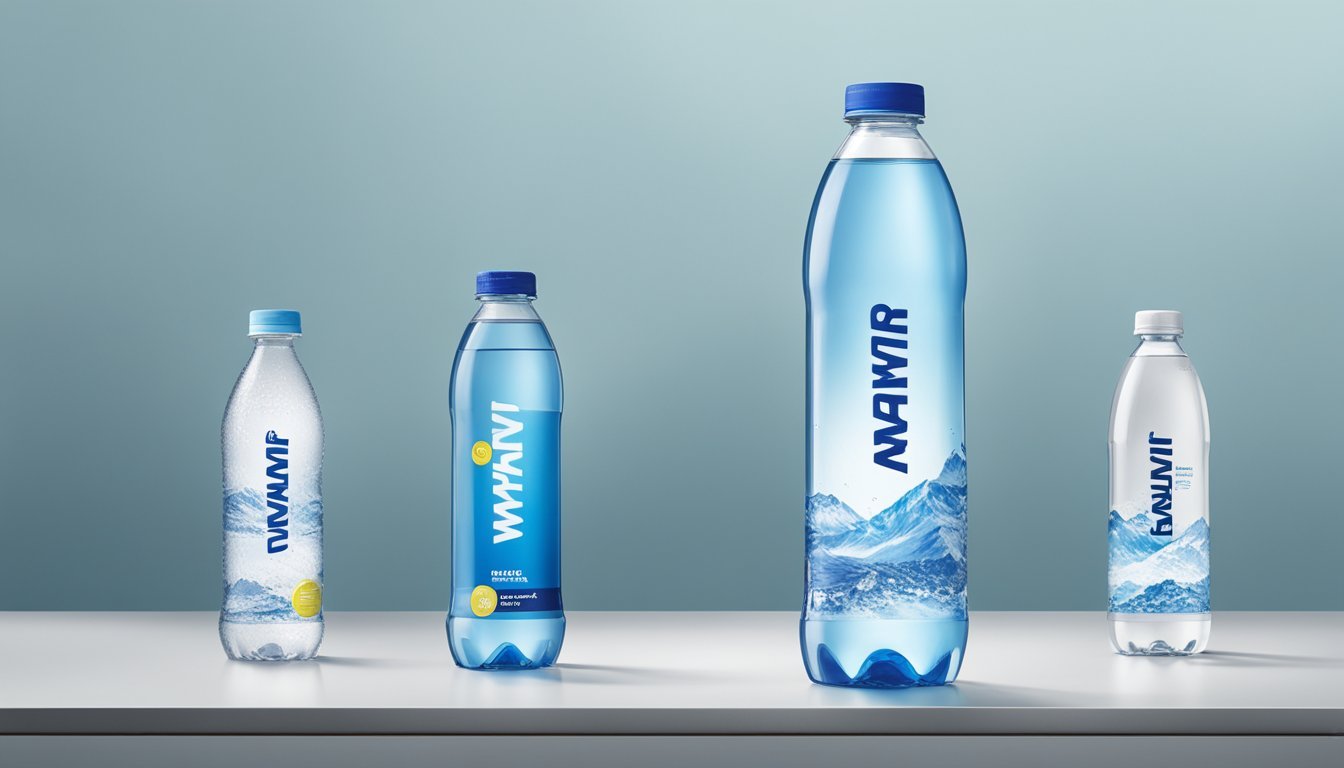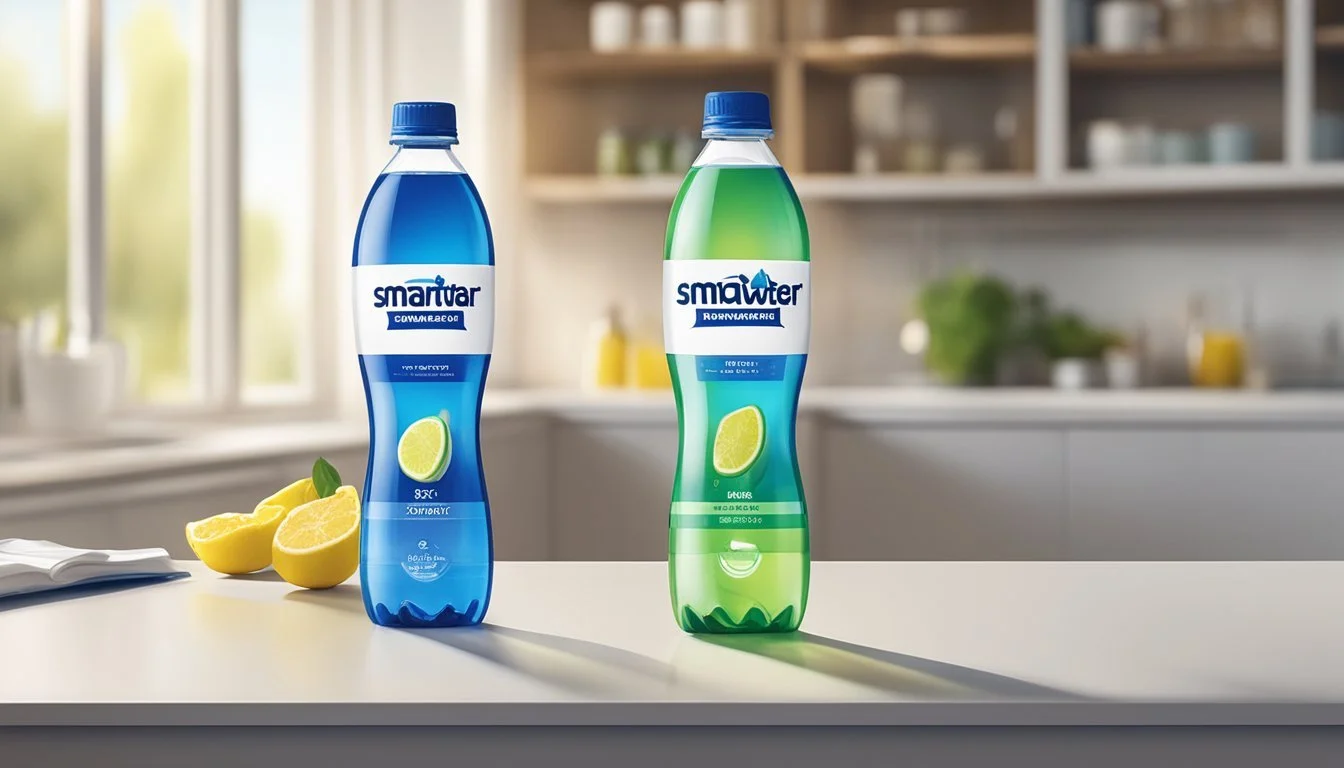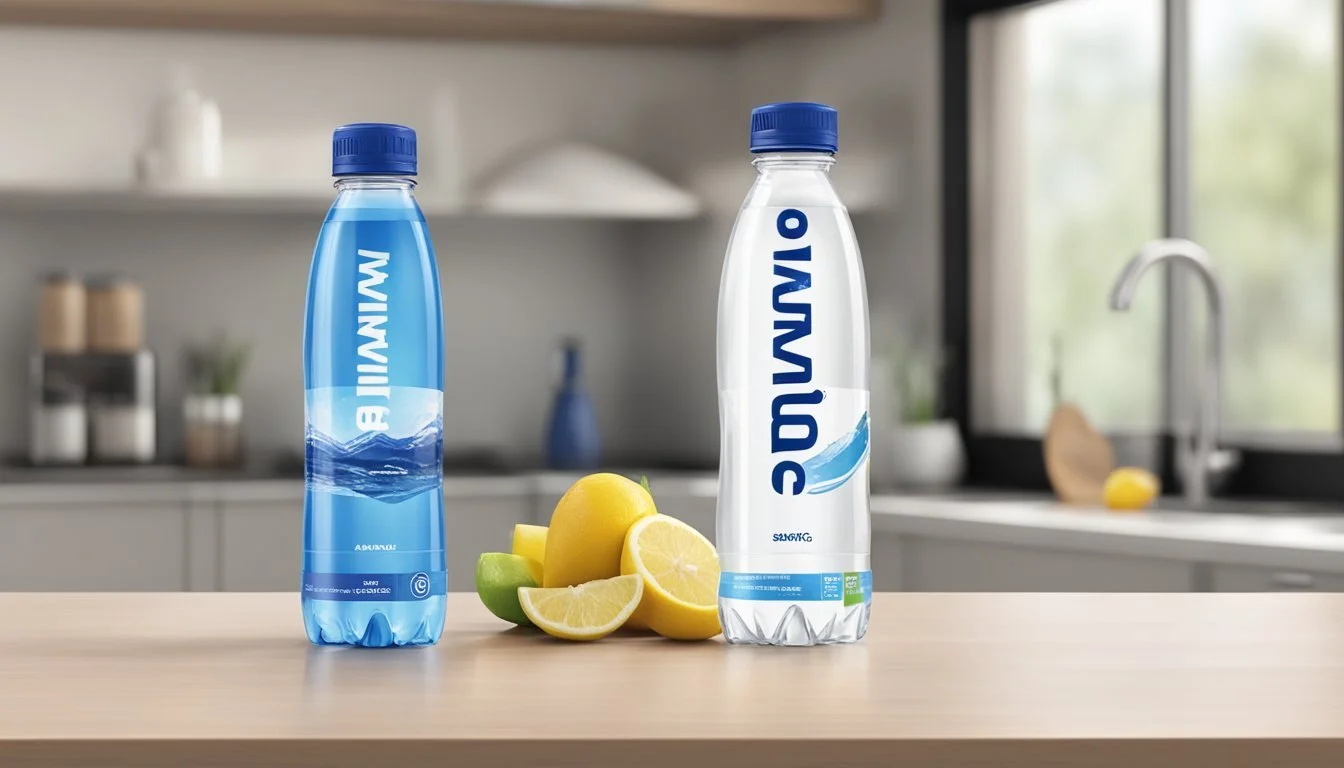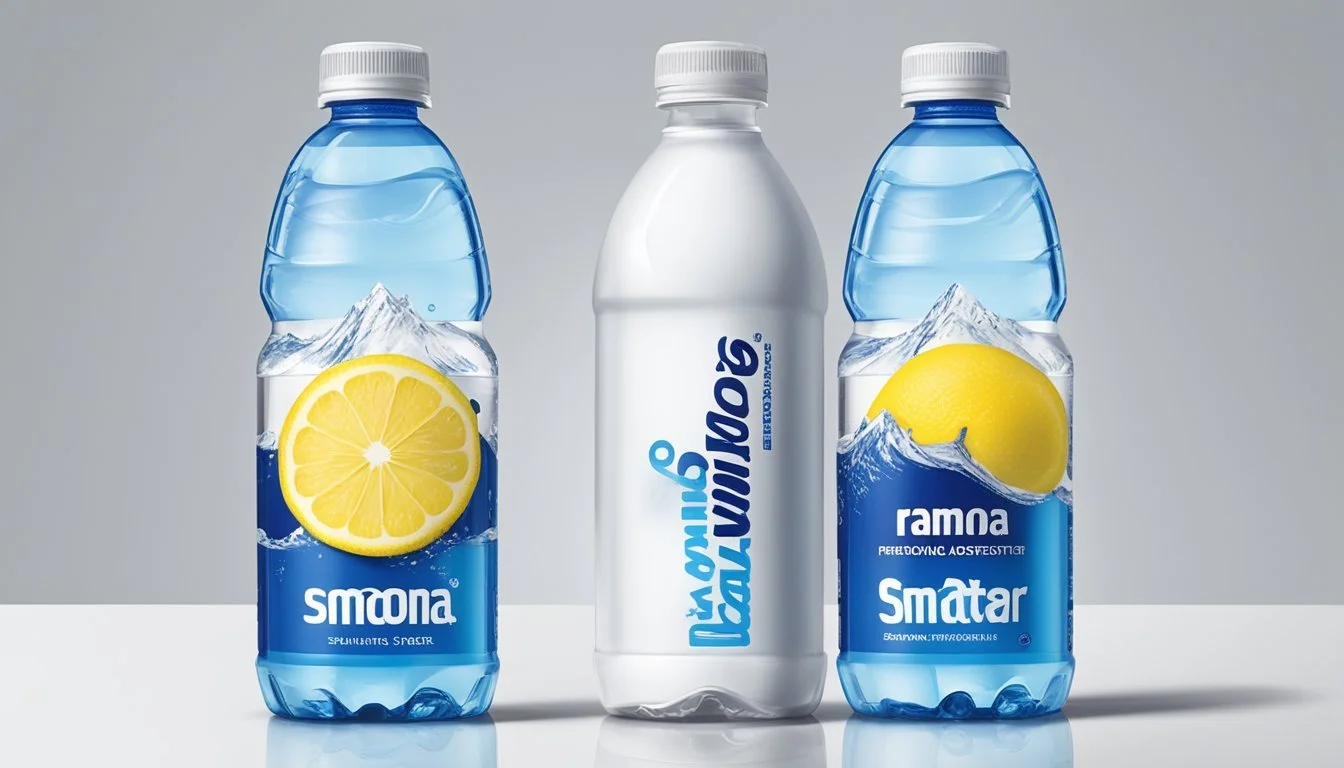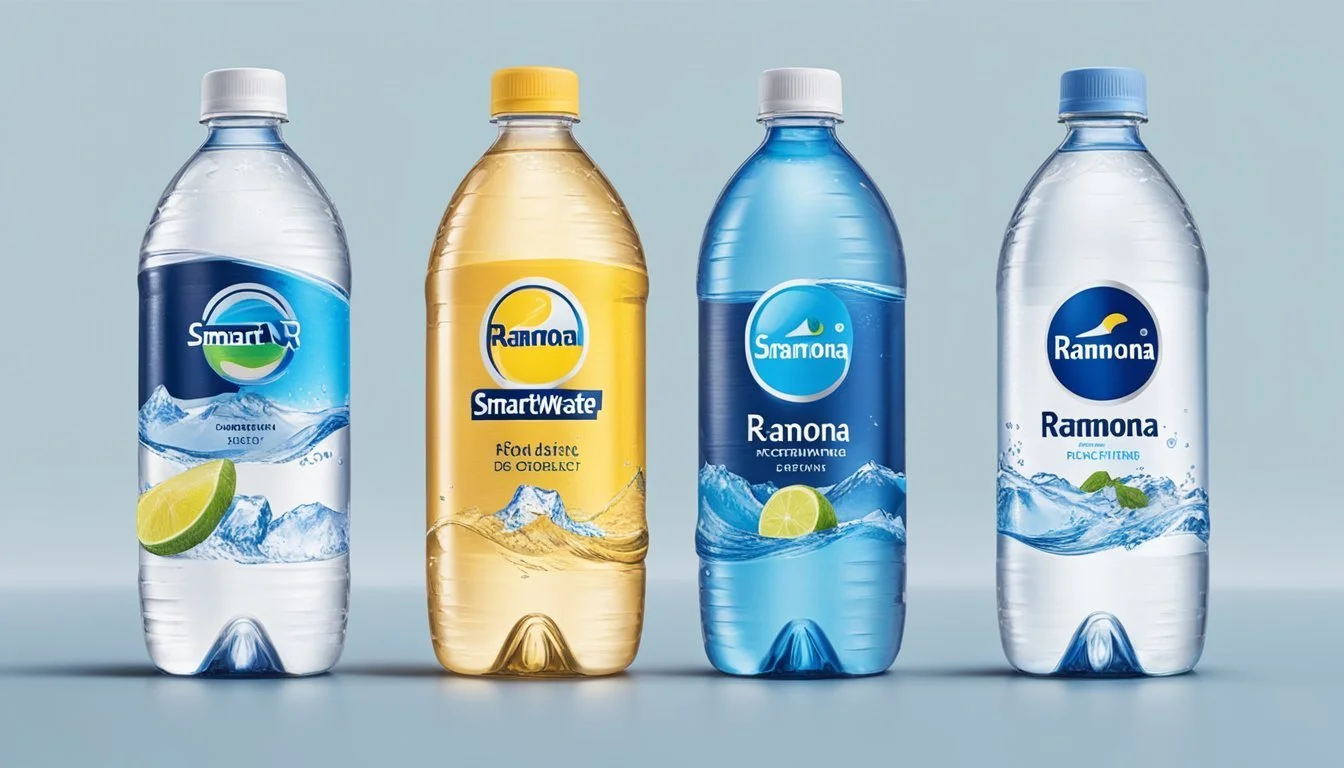Smartwater vs. Ramona
Comparing Quality and Taste
When it comes to choosing the best bottled water, consumers often find themselves debating between Smartwater and Ramona. While both brands offer convenience and hydration, they differ significantly in terms of quality and overall experience. Smartwater, with its vapor-distilled purification process and added electrolytes, provides a distinctly clean and crisp taste that many people favor.
Ramona, on the other hand, prides itself on offering natural spring water with a simpler approach to hydration. Unlike Smartwater, which emphasizes purity and enhanced mineral content, Ramona focuses on delivering water straight from natural sources. This can appeal to those who prefer a more traditional form of bottled water without added elements.
In the end, the choice between Smartwater and Ramona may come down to personal preference and specific hydration needs. For a premium, scientifically-enhanced drinking experience, Smartwater stands out as the better option, while Ramona offers a straightforward and natural choice for those who appreciate simplicity.
Overview of Bottled Water Brands
This section highlights the origin, distinctive features, and unique characteristics of two well-known bottled water brands: Smartwater and Ramona. These brands have carved out their niches by offering specific benefits to their consumers, influencing the bottled water market significantly.
Smartwater: Brand Origin and Distinct Features
Smartwater is a product of the Glaceau brand, which falls under the umbrella of The Coca-Cola Company. Founded by J. Darius Bikoff in 1996, Smartwater is renowned for its vapor-distilled purification process. This method eliminates impurities, resulting in clean-tasting water.
What sets Smartwater apart is its electrolyte-enhancement formula. Adding electrolytes such as calcium chloride, magnesium chloride, and potassium bicarbonate gives it a crisper taste. Smartwater also boasts FDA approval, aligning with strict guidelines for bottled water.
The distinctive features of Smartwater make it a preferred choice for those seeking premium hydration. Its unique selling points include its purity level and the slight mineral taste imparted by the added electrolytes.
Ramona: Brand Heritage and Unique Characteristics
Ramona, although lesser-known than some giants like Evian or Fiji, has its roots in a region celebrated for natural springs. This brand prides itself on delivering exceptional water quality derived from these pristine sources.
The key characteristic of Ramona is its natural mineral composition. Unlike Smartwater, which adds electrolytes post-distillation, Ramona offers water that is naturally enriched with minerals, providing a distinct flavor profile. This makes it a standout choice for those who appreciate water in its natural, unaltered form.
Ramona's heritage and natural approach to bottling water present it as a premium, eco-friendly option, appealing to consumers who value sustainability and natural resources. Its unique appeal lies in its authentic and sourced nature, setting it apart in the crowded bottled water market.
Composition of Smartwater and Ramona
Both Smartwater and Ramona take unique approaches to ensure their water is pure and beneficial. Smartwater uses vapor distillation and adds minerals for taste, while Ramona employs advanced filtration and mineral infusion techniques.
Smartwater: Vapor Distillation and Enhancement Process
Smartwater undergoes vapor distillation, a method that simulates the hydrologic cycle. Water is first boiled to create vapor, removing impurities. This vapor is then condensed back into liquid form, ensuring it is free from contaminants.
To enhance taste and benefits, Smartwater adds electrolytes—potassium bicarbonate, calcium chloride, and magnesium chloride. These electrolytes are added in trace amounts to provide a crisp, clean taste and to aid hydration. The pH of Smartwater generally falls around neutral, indicating balanced alkalinity and acidity.
Ramona: Filtration Techniques and Mineral Infusion
Ramona water goes through a multi-step filtration process to remove impurities. This includes sediment filtration, activated carbon adsorption, and sometimes reverse osmosis. These processes ensure the water is clean and free from contaminants.
After filtration, Ramona infuses beneficial minerals. Calcium, magnesium, and trace potassium are added to enhance both taste and health benefits. These minerals aid in hydration and provide essential nutrients. Ramona’s pH level is also maintained within a slightly alkaline range, which is often preferred for daily consumption.
Both brands prioritize purity and taste, implementing high-quality processes to achieve their goals.
Health and Hydration
Smartwater and Ramona both aim to provide enhanced hydration, with each brand offering various health benefits. However, users must consider factors like electrolyte content, pH levels, and potential health risks associated with these bottled waters.
Evaluating Hydration Efficiency
Smartwater is known for its vapor-distilled water process, which removes impurities. It includes electrolytes like calcium chloride, magnesium chloride, and potassium bicarbonate to improve taste. These electrolytes can aid in effective hydration, making it a popular choice for fitness enthusiasts.
On the other hand, Ramona focuses on maintaining a balanced pH level. If it's alkaline, this can help neutralize acid in the body and improve hydration. Alkaline water proponents suggest it may help with acid reflux and boost the immune system.
Both Smartwater and Ramona offer unique approaches to hydration, and the choice may come down to personal preference and specific hydration needs.
Potential Health Benefits and Risks
Smartwater’s added electrolytes can potentially aid muscle function, nerve transmission, and fluid balance. However, it lacks certain antioxidants and minerals found in some natural spring waters. It’s also important to note that despite marketing claims, tap water usually meets hydration needs without added cost.
Ramona might contain selenium or other minerals, which have antioxidant properties. This can support the immune system and overall health. However, consuming alkaline water excessively may upset the body's natural pH balance.
While both options offer potential health benefits, it’s crucial to consider individual health requirements and consult health professionals if unsure. Missteps in choosing bottled water could lead to overlooked health needs.
Taste Profiles and Consumer Preferences
Smartwater and Ramona offer distinctly different taste experiences, appealing to varied consumer preferences. While Smartwater provides a range of flavors and pH-balance options, Ramona emphasizes its natural and clean taste profile, gaining praise for its refreshing qualities.
Smartwater: Variety and Flavors Offered
Smartwater is known for its unique purification process that includes vapor distillation. This method results in a crisp, clean taste that many consumers find refreshing. Smartwater also offers a variety of flavored waters, including options like lemon, lime, and cucumber mint, each infused with natural flavors that enhance the drinking experience.
Alongside its traditional Smartwater, there's Smartwater Alkaline, with a higher pH level aimed at those who prefer alkaline water. These variations cater to diverse taste preferences, making it a versatile choice in the bottled water market. The brand’s commitment to purity and flavor ensures it maintains a strong following among health-conscious consumers.
Ramona: Natural Flavors and Consumer Reception
Ramona water stands out for its clean and crisp taste, attributed to its natural mineral content and pH balance. Unlike brands that add flavors, Ramona focuses on the purity of its water source, ensuring a refreshing experience without any added taste alterations.
Consumers often praise Ramona for its neutral and pure flavor, which does not interfere with the taste of food or other beverages. This makes it a popular choice for those who prioritize a straightforward, unembellished water taste. The brand’s emphasis on natural quality appeals to consumers looking for a reliable and consistent hydration option.
Environmental Considerations
Environmental impact is a crucial factor when choosing between Smartwater and Ramona. This section evaluates the effects of bottled water production and sustainable practices employed in packaging and distribution.
The Impact of Bottled Water Production
The production of bottled water, whether Smartwater or Ramona, involves significant environmental costs. Both brands primarily use plastic bottles made from polyethylene terephthalate (PET).
Plastic bottles require substantial amounts of fossil fuels for manufacturing. The extraction and processing of these fuels release greenhouse gases. This adds to the carbon footprint of the bottled water industry.
In addition to carbon emissions, the production process demands large quantities of water. For every liter of bottled water produced, up to three liters of water may be used. This inefficiency exacerbates water scarcity in certain regions, posing another environmental challenge.
Moreover, plastic bottles often contain substances like BPA (bisphenol A), which can pose health risks if not managed properly. This concern highlights the need for more eco-friendly alternatives and better recycling practices.
Sustainable Practices in Packaging and Distribution
Some practices can mitigate the environmental impact of bottled water production. Both Smartwater and Ramona have taken steps to incorporate sustainable practices in their packaging and distribution.
Smartwater has introduced initiatives to reduce the amount of plastic used in their bottles. They now offer options in glass bottles, which are reusable and have a lower environmental impact compared to plastic. Glass is more conducive to recycling, adding a positive note to sustainability efforts.
On the other hand, Ramona focuses on using recycled plastics for their packaging. This effort helps to reduce waste and save natural resources, decreasing the carbon footprint of their production.
Distribution methods are also crucial. Efficient logistics plans, including local sourcing and distribution, can significantly cut down on transportation emissions. Both brands are exploring ways to optimize their supply chains to achieve better environmental outcomes.
Comparative Cost Analysis
Smartwater and Ramona differ notably in their pricing and value considerations, and examining various consumer options reveals insights into their affordability and overall value.
Price Points and Value Propositions
Smartwater tends to be on the more expensive side compared to other bottled water brands. Its premium pricing is often justified by its vapor-distillation process and added electrolytes.
Ramona, by contrast, is generally priced more affordably. Despite its lower cost, Ramona is known for its convenient availability and quality, which makes it an attractive option for many consumers.
Smartwater's higher price point appeals to consumers seeking specific benefits like added taste or perceived health advantages. Ramona’s competitive pricing and broad distribution make it appealing to a wide audience, including those who prioritize cost-efficiency and ease of access.
Options for Budget-Conscious Consumers
For those mindful of their budgets, Ramona presents a more cost-effective choice without compromising quality. It is typically available in a variety of sizes, offering flexibility for different needs and preferences.
Smartwater, although pricier, may offer value to consumers who view its additional features as worth the higher cost. The availability of multi-pack options can also make Smartwater slightly less expensive per unit, appealing to frequent buyers.
Filtered tap water remains the most budget-friendly option, but for those preferring bottled water, Ramona offers significant savings. Bulk purchasing of either brand can further reduce costs, presenting an economical solution for daily hydration needs.
Regulatory and Quality Standards
Smartwater and Ramona both adhere to strict regulatory and quality standards to ensure their products' safety and purity. This section covers the safety guidelines and compliance measures both brands follow to deliver purified water to consumers.
Ensuring Water Safety and Compliance
Both Smartwater and Ramona must comply with FDA regulations, which are at least as stringent as the EPA standards for tap water. This regulatory framework ensures the water is free from contaminants and safe for consumption.
Smartwater undergoes a sophisticated filtration process involving vapor distillation, which removes impurities and results in purified water. The brand meets all FDA Bottled Water Regulations Standards of Quality.
Ramona also adheres to FDA regulations, following meticulous purification processes to eliminate contaminants. They prioritize water safety, employing multiple stages of filtration to ensure high water quality.
By maintaining rigorous compliance with federal regulations, both brands consistently provide safe, high-quality bottled water to their customers.
More About Smartwater
Core Hydration vs Smartwater: Which Bottled Water is Better?
Icelandic Glacial vs Smartwater: Which Bottled Water is Better?
Mountain Valley Spring Water vs Smartwater: Which Bottled Water is Better?
Nestle Pure Life vs Smartwater: Which Bottled Water is Better?
San Pellegrino vs Smartwater: Which Bottled Water is Better?
Smartwater vs Aqua Carpatica: Which Bottled Water is Better?
Smartwater vs Cascade Mountain: Which Bottled Water is Better?
Smartwater vs Crystal Geyser: Which Bottled Water is Better?
Smartwater vs Hawaii Volcanic: Which Bottled Water is Better?
Smartwater vs Hawaiian Springs: Which Bottled Water is Better?
Smartwater vs Kirkland Signature: Which Bottled Water is Better?
Smartwater vs Richard's Rainwater: Which Bottled Water is Better?
Smartwater vs Solan de Cabras: Which Bottled Water is Better?
Smartwater vs Talking Rain AQA: Which Bottled Water is Better?
Smartwater vs Whole Foods 365: Which Bottled Water is Better?
Smartwater vs Whole Foods Italian Still Mineral water: Which Bottled Water is Better?

